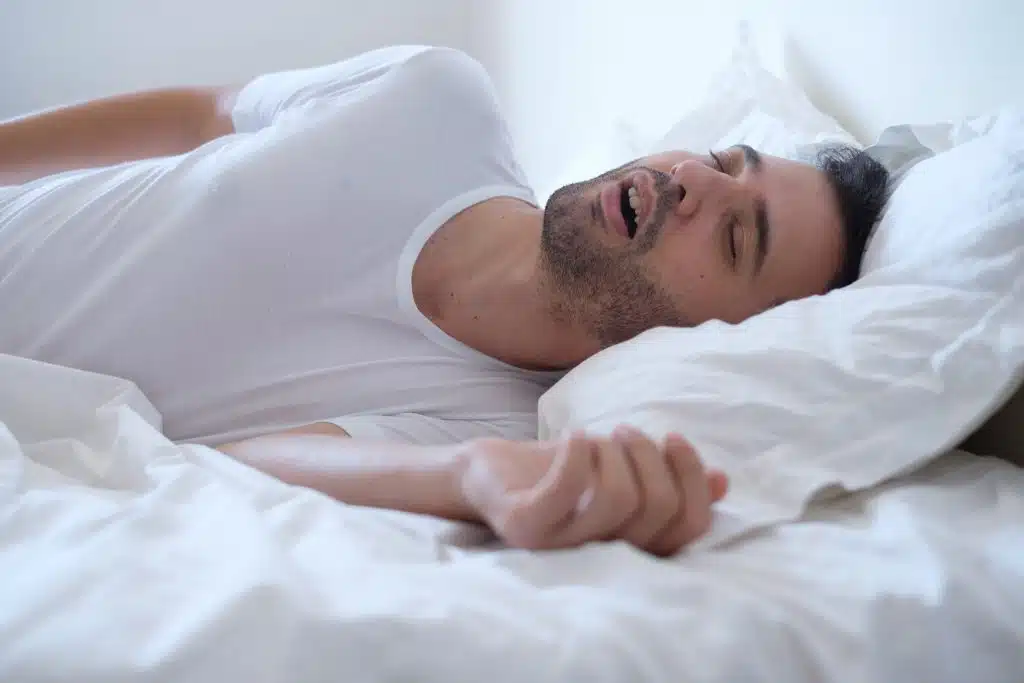Obstructive sleep apnea is a type of sleep disorder that affects millions of people worldwide. It is characterized by episodes of interrupted breathing during sleep, leading to poor sleep quality, daytime fatigue, and other related health problems. While sleep apnea can be a debilitating condition, there are many ways to manage it. One of the easiest ways is to make a few simple lifestyle changes.
What is Sleep Apnea?
Sleep apnea is a sleep disorder characterized by repeated episodes of stopped breathing during sleep. These episodes can occur hundreds of times per night, leading to fragmented and poor sleep quality. There are three types of sleep apnea: obstructive sleep apnea, central sleep apnea, and complex sleep apnea syndrome. Obstructive sleep apnea is the most common type, and it occurs when the airway is blocked by soft tissues in the throat and back of the mouth.
The most common symptoms of sleep apnea include things like loud snoring, choking or gasping during sleep, daytime fatigue, morning headaches, difficulty concentrating, and irritability. Other related health problems that can be caused by sleep apnea include high blood pressure, heart disease, stroke, and diabetes. Not everyone experiences the same symptoms of sleep apnea or the same side-effects, which is why it’s important to screen for the condition if you meet any of the risk factors.
Lifestyle Changes for Sleep Apnea
Lifestyle changes can help improve the symptoms of sleep apnea, especially in mild cases. Here are some lifestyle changes that can help manage sleep apnea:
Maintain a healthy weight: Obesity is one of the primary risk factors for sleep apnea. Did you know that a larger neck circumference significantly increases your risk of airway obstruction? Losing weight can help reduce the severity of sleep apnea and improve overall health. Even a modest weight loss of 5-10% can have significant benefits. This can usually be achieved by following a healthy diet and getting regular physical activity.
Avoid alcohol and sedatives: Alcohol and sedatives can relax the muscles in the throat, leading to increased episodes of sleep apnea. Avoiding or reducing alcohol consumption and sedative use can help reduce the severity of sleep apnea symptoms.
Engage in regular exercise: Regular exercise can help improve sleep quality and reduce the severity of sleep apnea. Exercise helps reduce stress, improve mood, and promote overall health. Aim to engage in at least 30 minutes of moderate intensity exercise most days of the week.
Sleep on your side: sleeping on your back can cause the tongue and soft tissues in the throat to collapse, leading to increased episodes of sleep apnea. Sleeping on your side may help prevent this from happening. You can use a body pillow or other props to help maintain a side-sleeping position.
Stop smoking: Smoking can cause inflammation and swelling in the airway, leading to increased episodes of sleep apnea. Quitting smoking can help reduce the severity of sleep apnea and improve overall health.
Sleep Apnea Treatments at San Diego Sleep and TMJ Center
Dental treatments such as custom oral appliances can be an effective way to manage sleep apnea, especially in cases of mild to moderate obstructive sleep apnea. The most common dental treatments for sleep apnea are oral appliance therapy using mandibular advancement devices.
What is Oral Appliance Therapy?
An oral appliance is a device that is custom-made to fit over the teeth and hold the jaw in a forward position. By holding the jaw in a forward position, the oral appliance can help keep the airway open during sleep, reducing the severity of airway blockage and sleep apnea. Oral appliance therapy is a comfortable and non-invasive treatment option that can be effective for many people with sleep apnea. Most people refer to these appliances as “mandibular advancement devices” because of how they position your mandible (lower jaw) in a slightly anterior position.
Schedule Your Consultation
If you’re struggling with sleep apnea or TMJ disorder, schedule a consultation at San Diego Sleep and TMJ Center. Our experienced team can provide personalized treatment options to help you achieve better sleep and oral health. Call our office today to get started!


